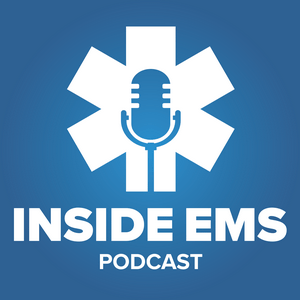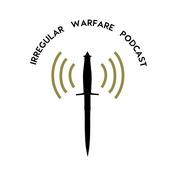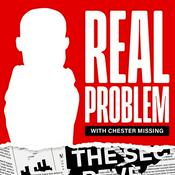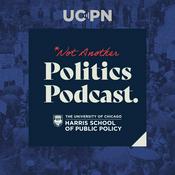700 episodes

Why avoiding tough talks is killing your credibility
2025/12/05 | 29 mins.
What do you do when someone on your team is struggling — and it’s on you to say something? In this episode of the Inside EMS podcast, Chris Cebollero and Kelly Grayson dive headfirst into one of leadership’s toughest challenges: holding people accountable without losing your humanity. This episode challenges leaders to ditch outdated progressive discipline models and start leading with clarity and empathy. Whether you’re a seasoned supervisor or new to the hot seat, this one hits home. And if you’ve been avoiding a conversation, consider this your nudge to stop choosing comfort over your own integrity. Quotable takeaways “Firing people with compassion, managing your ego, their ego, admitting mistakes and just being human — these are the places where real leaders show up.” “One of the things I try to teach is that I don't fire anybody — I just process the paperwork. People fire themselves.” “EMS is a very egotistical business, and it's that ego that keeps us from asking questions. Because we don't want to look like we don't know what we're talking about in front of our peers.” Enjoying Inside EMS? Email [email protected] to share feedback or suggest a guest!

Fire/EMS pay parity and a big helping of cranberry sauce
2025/12/01 | 26 mins.
This week on the Inside EMS podcast, we’re passing the gravy and the hot takes. Cohosts Chris Cebollero and Kelly Grayson serve up a holiday plate full of EMS news — starting with FDNY’s potential EMS split. They dig into what fair pay really looks like, why some EMTs are suing for what they’re owed, and whether big hospital systems like Yale New Haven are reshaping the ambulance game for better or worse. Whether you’re working a turkey-day shift or finally off duty, this episode hits hard and gives thanks where it’s due. Quotable takeaways: “If you’re gonna be in the EMS business, you’ve gotta be in the EMS business, right?” “One thing we need to do as leaders is to make sure we don’t mess with people’s money.” “If you’re not giving adequate funding and attention to the EMS side of the house, then that’s a recipe for trouble and it can’t last.” Enjoying Inside EMS? Email [email protected] to share feedback or suggest a guest for a future episode.

Whole blood, dual shocks and why the AHA still doesn’t get us
2025/11/21 | 30 mins.
This week on the Inside EMS podcast, Dr. Peter Antevy returns for another round in the hot seat, and he’s not holding back. In this jam-packed episode, he and host Chris Cebollero tackle trending topics in prehospital care — from the expanding role of whole blood and plasma, to the frustrating gaps in the AHA’s 2025 guidelines. You’ll hear real-world success stories (like the cardiac arrest survivor who’s back on the tennis court), why dual sequential defibrillation (DSD) should already be your go-to, and the cost-benefit realities of starting a whole blood program. Dr. Antevy also dives into the science behind glycocalyx damage and how plasma could change how we treat sepsis, TBI and burns in the field. Whether you’re a medic, medical director or just passionate about pushing EMS forward, this episode delivers practical insight, bold opinions and a whole lot of inspiration. Quotable takeaways from Dr. Antevy “The medical establishment does not understand the value of what EMS brings to the table. They don't understand the complexity.” “When we said, ‘We'll do the whole blood,’ what did the surgeons do? They went up in arms: ‘What do you mean you're giving whole blood? Bring them to us. We'll give the whole blood.’ No, no, no. We are part of the chain of survival, too.” “EMS is a subspecialty in the house of medicine. We all need to rise up to make the hospital folks and the academics aware that EMS is important for trauma, for stroke, for pediatrics, for cardiac. We are the ones who can help bring up those outcomes and that's why I love this field.” Additional resources: AHA 2025 updates are here: Cue the overreactions and the protocol rewrites On-demand: Bringing whole blood to the front lines of EMS Stop the bleed, fill the tank – The New Orleans EMS blood program Whole blood in EMS promises a revolution in resuscitation Enjoying Inside EMS? Email [email protected] to share feedback or suggest a guest for a future episode.

TikTok star Jimmy Apple is challenging EMS dogma with data and kindness
2025/11/14 | 28 mins.
This week on the Inside EMS podcast, host Kelly Grayson sits down with Jimmy Apple — known as the “EMS Avenger” on TikTok — to explore how he’s challenging long‑standing EMS norms and delivering evidence‑based content at scale. With 22 years in EMS, the pediatric critical‑care paramedic has built a strong digital platform that merges clinical rigor with plain‑spoken commentary. Whether you’re hung up on “what’s new” or “what really works,” this episode offers a spirited discussion, thoughtful commentary and a call to re‑examine what we do — and why. Memorable takeaways “What we learn tends to define who we are as a provider, particularly when the information was learned during our formative years.” “I don’t want to have to spend my time defending a personal position. I would rather talk about how we can guide ourselves based on what we are actually seeing with data that is as objective as we can get it.” Enjoying Inside EMS? Email [email protected] to share feedback and suggest guests for future episodes.

How to lead without being that boss
2025/11/07 | 26 mins.
Let’s face it — most discussions on leadership sound like someone regurgitating a business best seller. Not this time. In this week’s episode of the Inside EMS podcast, cohosts Chris Cebollero and Kelly Grayson get real about the six leadership habits that actually matter when you're running a shift, a truck or a team that relies on each other not to screw it up. This isn’t about titles, org charts or leadership flavor-of-the-month. We’re talking self-awareness, collaboration and adaptability — the stuff that separates real-deal leaders from clipboard-holding disasters. Whether you’re trying to step up or just sick of bad leadership, this episode’s got what you need to lead better — without the cringe. Memorable quotes “What I can't stand in a leader is someone who waffles and is just blown by the wind. I would much rather have somebody say, ‘This is what we're gonna do.’ And then after, ‘Ooh, that was a bad idea. I'm sorry for that. That's on me.’” “If the team's confused, it's not a team problem. It's a leadership problem.” “Leaders who don’t know themselves lead through ego and insecurity.” Enjoying Inside EMS? Email [email protected] to share feedback.
More Government podcasts
Trending Government podcasts
About Inside EMS
Listen to Inside EMS, Strict Scrutiny and many other podcasts from around the world with the radio.net app

Get the free radio.net app
- Stations and podcasts to bookmark
- Stream via Wi-Fi or Bluetooth
- Supports Carplay & Android Auto
- Many other app features
Get the free radio.net app
- Stations and podcasts to bookmark
- Stream via Wi-Fi or Bluetooth
- Supports Carplay & Android Auto
- Many other app features


Inside EMS
download the app,
start listening.

















